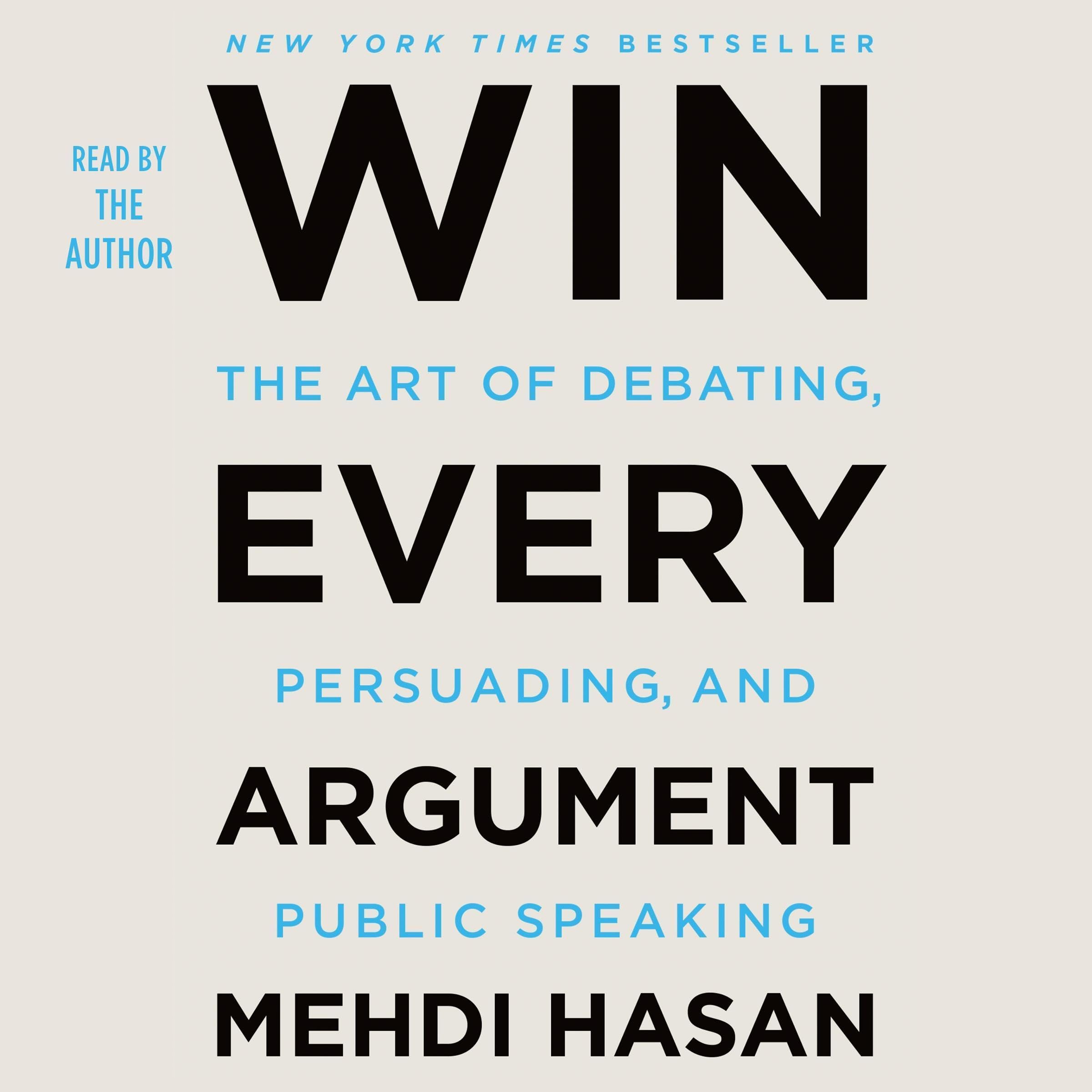
Win Every Argument: The Art of Debating, Persuading, and Public Speaking
4.6 4.6 out of 5 stars | 1,172 ratings
Price: 13.12
Last update: 12-24-2024
About this item
This program is read by and contains archival audio of the author from MSNBC, BBC Question Time, Oxford Union, and other sources.
Win Every Argument shows how anyone can communicate with confidence, rise above the tit-for-tats on social media, and triumph in a successful and productive debate in the real world.
MSNBC’s Mehdi Hasan isn’t one to avoid arguments. He relishes them as the lifeblood of democracy and the only surefire way to establish the truth. Arguments help us solve problems, uncover new ideas we might not have considered, and nudge our disagreements toward mutual understanding. A good argument, made in good faith, has intrinsic value—and can also simply be fun.
Arguments are everywhere—and especially given the fierce debates we’re all embroiled in today, everyone wants to win. In this riveting guide to the art of argument and rhetoric, Hasan shows you how. As a journalist, anchor, and interviewer who has clashed with politicians, generals, spy chiefs, and celebrities from across the world, Hasan reveals his tricks of the trade for the first time.
Whether you are making a presentation at work or debating current political issues with a friend, Mehdi Hasan will teach you how to sharpen your speaking skills to make the winning case.
A Macmillan Audio production from Henry Holt & Company.
Top reviews from the United States
I only found one thing in the entire book that I take issue with, and am even willing to argue with Mr. Hasan about it. That is his statement at the 67% mark in the kindle version (I don't know what the page number in the dead-tree version would be) that of the four Ps in speaking (pitch, pace, power, and pausing), pitch is your tone of voice. Pitch is actually the "notes" you are using (varying from high to low). Tone of voice is not necessarily tied to pitch, but is an aural clue to how you feel about what you're saying / the matter under discussion. e.g., you can speak in a sarcastic tone of voice, which will be spoken at different pitches/notes depending on your natural speaking voice (typically higher pitch for women than men). Typically pitch goes up when the speaker is excited, but the tone may stay the same. Pitch is related to notes; tone of voice is more closely associated with a person's body English or facial expression. So pitch is only indirectly related to tone of voice.
Reviewed in the United States on March 2, 2023
I only found one thing in the entire book that I take issue with, and am even willing to argue with Mr. Hasan about it. That is his statement at the 67% mark in the kindle version (I don't know what the page number in the dead-tree version would be) that of the four Ps in speaking (pitch, pace, power, and pausing), pitch is your tone of voice. Pitch is actually the "notes" you are using (varying from high to low). Tone of voice is not necessarily tied to pitch, but is an aural clue to how you feel about what you're saying / the matter under discussion. e.g., you can speak in a sarcastic tone of voice, which will be spoken at different pitches/notes depending on your natural speaking voice (typically higher pitch for women than men). Typically pitch goes up when the speaker is excited, but the tone may stay the same. Pitch is related to notes; tone of voice is more closely associated with a person's body English or facial expression. So pitch is only indirectly related to tone of voice.

What I appreciated most about the book is that it doesn't just list bullet points to follow. Instead, much like his debates, it takes you on a journey, making you a student of his process and helping you learn step by step.
This book is like a handbook. I read the first two chapters in one night, but a friend suggested I read it gradually to let the concepts sink in over time. I also got the audiobook, narrated by Mehdi Hassan himself, and I loved his storytelling style. In the beginning I didn't like the idea of making examples from his own experiences and I found them a bit show off, but later on, there were more famous examples and they really helped him making his point. Moreover, I guess it was not only show-offs, but trying to imply that he also trained himself and got the skills, which gives confidence to the reader.
This book isn't just about winning debates. It can transform how you make arguments and connect with your audience, even if it's just one person, helping you effectively convey your message. I strongly suggest it!